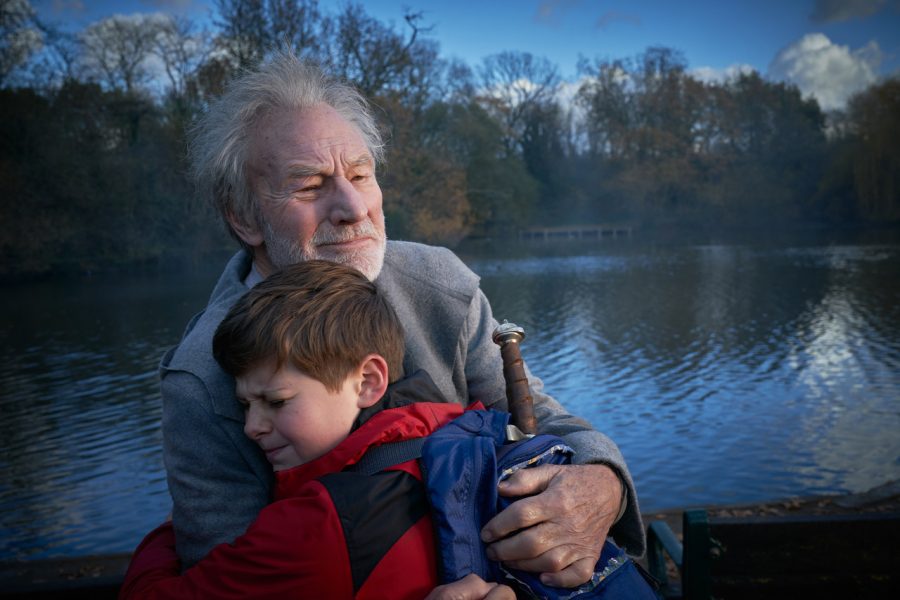REVIEW: Inspired last 30 minutes salvage Cornish’s ‘The Kid Who Would Be King’
There’s a red herring scene about 90 minutes into Joe Cornish’s “The Kid Who Would Be King” that, at the time, seems to signal the end of a meandering, puzzlingly lifeless “King Arthur” adaptation. The plot seems to have run its course and all the loose ends are tied together nicely, but the film up to that point barely had a pulse, let alone the quick wit and immutable style that made audiences fall in love with Cornish after 2011’s “Attack the Block.”
If it had ended there, “The Kid Who Would Be King” would’ve been a major disappointment and a significant step back in Cornish’s sophomore effort as a director.
Luckily, it doesn’t end there, but rather opens into a final 30 minutes teeming with Cornish’s individuality and creativity. The film shows up to its final act broken and devoid of personality, but thanks to Cornish’s deft touch and explosive personal flair, “The Kid Who Would Be King” unfolds into twice the film it appeared to be.
The plot of the film, in itself, is nothing we haven’t seen before in movies, plays, books or literally every other medium known to man. Alex is a troubled 12-year-old British boy portrayed with surprising aplomb by Louis Ashbourne Serkis (son of Andy Serkis). He stumbles across the famed “sword in the stone,” pulls it out and has to save the world from evil forces with the help of his “knights of the roundtable.”
For the first two-thirds of “The Kid Who Would Be King,” the film’s only real unique selling proposition is that its band of heroes are schoolchildren. Aside from awe-inspiring imagery painted by cinematographer Bill Pope and some moderately thrilling action set pieces, the film drudges along at a sluggish pace.
FILM FACT BOX
Title: The Kid Who Would Be King
Director: Joe Cornish
Starring: Louis Ashbourne Serkis, Tom Taylor, Angus Imrie, Rhianna Dorris, Dean Chaumoo, Denise Gough, Patrick Stewart, Rebecca Ferguson
Writer: Joe Cornish
Runtime: 120 minutes
These sections are only made moderately interesting by interspersing scenes with Patrick Stewart, cementing his status as film’s charming grandpa by playing the wise Merlin with whacked out hair and a Led Zeppelin T-shirt.
The film finds itself in a peculiar conundrum for its first two acts: The movie is a classic retelling, repurposed by casting children, yet it’s completely devoid of any whimsy or sense of adolescent wonder.
That, thank goodness, is completely alleviated by the movie’s finale, a clear showcase of Cornish’s eye for the fantastical. “The Kid Who Would Be King” ends with a battle sequence for the fate of the universe, but by the demeanor and delivery of the actors, it just feels like childhood friends playing pretend in their backyard, and I mean that in the best way possible. It’s refreshing to watch a movie and see the filmmakers having fun.
The last scenes of the movie hearken back to days on the playground, better days when we were just kids being kids and our biggest problem was figuring out which kickball team we’d get picked by at recess. Cornish, though now a 50-year-old man, captures that magic beautifully, and it’s not hard to imagine the director living vicariously through his kid actors a bit.
It’s because of this spectacular final act that Cornish’s message and theme revealed toward the end of the movie work. Without a strong finish, the director’s post-Brexit call for hope as younger generations enter positions of power would have fallen on deaf ears, and the movie and its viewership are better off for it.
“The Kid Who Would Be King” doesn’t work until it does, and it does when the movie goes completely bonkers in a fashion befitting only of its director, Joe Cornish. He’s the key; when his clear inspiration is missing, the movie meanders.
But when Cornish and his boundless imagination really take the reigns, “The Kid Who Would Be King” morphs into a completely different movie, one that’s a lot better and worth a watch.
GRADE: C+
Cameron Hoover is a film critic. Contact him at [email protected].


